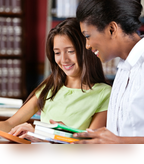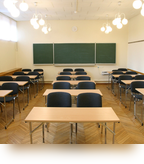Learn how to read the new words and sentences: first read them to
yourself, then aloud as quickly as you can.
late, age, school age, at the age of eight, people of all
ages. In Russia children begin to go to school at the age
of six. In Great Britain pupils usually leave school at the
age of sixteen.
[e] ten, pen, a pen — pens. There are many pens and pencils
on my desk. Count your pens, please. Where is your
pen?
[ʌ] cup, rubber, a rubber — rubbers, a pencil with a rubber.
Give me the rubber, please. I haven’t got a rubber in my
bag. Do you like my new blue rubber?
[u:] blue, ruler, a ruler — rulers. Your ruler is longer than my
ruler. Can you give me a ruler, please? Where are the
rulers?
[ɑ:] dark, carpet, a carpet — carpets, a beautiful carpet. Shall
I put the carpet on the floor? Your carpet makes the
classroom comfortable. There is a beautiful carpet near
the bookcase.
[aʊ] out, outdoors (out-of-doors). I like to play different games
outdoors. In hot countries you can sleep outdoors. It is
cold outdoors, isn’t it? Do you always play basketball
outdoors?
[ɪ] big, difficult ['difikəlt], a difficult book, a difficult class, a
difficult poem, a difficult game. I don’t think it is diffi-
cult to help about the house now.
[i:] read, easy, easy work, an easy poem, easy lessons. Our
life is not always easy, it is sometimes very difficult. It
is not always easy to count.















